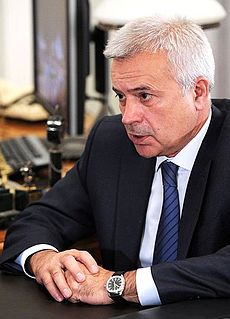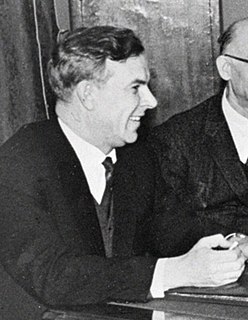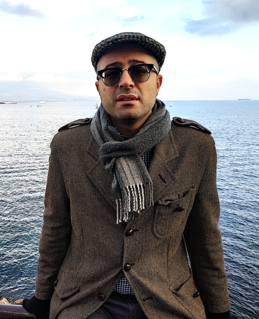A Quote by Kehinde Wiley
It was probably one of the things that gave me a sense of possibility and allowed for me to see beyond the small community that I existed within. You know, I was making friends with young Soviet kids. this is during perestroika. You know, there's bread lines and vodka lines. The entire social structure of what was then the Soviet Union was radically different from what we know today.
Related Quotes
During 1989, my mother, who was exceedingly good at finding these free programs - you know, we were on welfare, just trying to get through - but she would find these amazing programs. She sent me to the Soviet Union at the age of 12 to go study in the forest of then-Leningrad with 50 other Soviet kids.
Back in 1956, we signed a treaty and surprisingly it was ratified both by the Supreme Soviet of the Soviet Union and the Japanese Parliament. But then Japan refused to implement it and after that the Soviet Union also, so to say, nullified all the agreements reached within the framework of the treaty.
I don't think we replaced the Soviet Union with Al Qaida. I think we replaced, we should have, Soviet Union with the merger of globalization and the IT revolution. I think it's that. That is the real challenge that we face today. Unlike the Soviet Union, it has no face, it has no missiles, but it is something that challenges every job, every city and every community.
This much I would say: Socialism has failed all over the world. In the eighties, I would hear every day that there is no inflation in the Soviet Union, there is no poverty in the Soviet Union, there is no unemployment in the Soviet Union. And now we find that, due to Socialism, there is no Soviet Union!
KGB was inseparable part of the Soviet Union and the whole structure of the Soviet society. We believe that the achievements of the Soviet Union and of the Soviet society, it's main achievements until the split in 1991, it was at the same time the main achievements of the KGB, because it was working for the same cause.
Women are the most denigrated social group in the Soviet Union. The idea of women's emancipation is only a slogan in - but also, I should say, in many places outside - the Soviet Union. But especially in the militaristic Soviet society, people only thought of life in terms of struggle and the workers' toil.
The only thing I know that makes me feel comfortable is to know as much as I can. Not like what the shots are going to be, but knowing enough about my character that I can forget those things. And more specifically, my lines. I have to know my lines. I have to know something really well, so I can forget it when we're doing it. And there is comfort in knowing, "Okay, there's not another stone that I could have overturned."
Gorecki, you know, there's a kind of personal thing there for me. I had, you know, kind of become obsessed with that sort of Soviet Bloc period. And actually, a lot of composers in the Soviet Bloc - Gorecki's not the only one - are writing for the harpsichord as a sort of reaction against enforced Soviet realism, expressionism, sort of enforced modernism.
You know, we did a good job in containing the Soviet Union, but we made a lot of mistakes, we supported really nasty guys, we did some things that we are not particularly proud of, from Latin America to Southeast Asia, but we did have a kind of overarching framework about what we were trying to do that did lead to the defeat of the Soviet Union and the collapse of Communism. That was our objective. We achieved it.







































